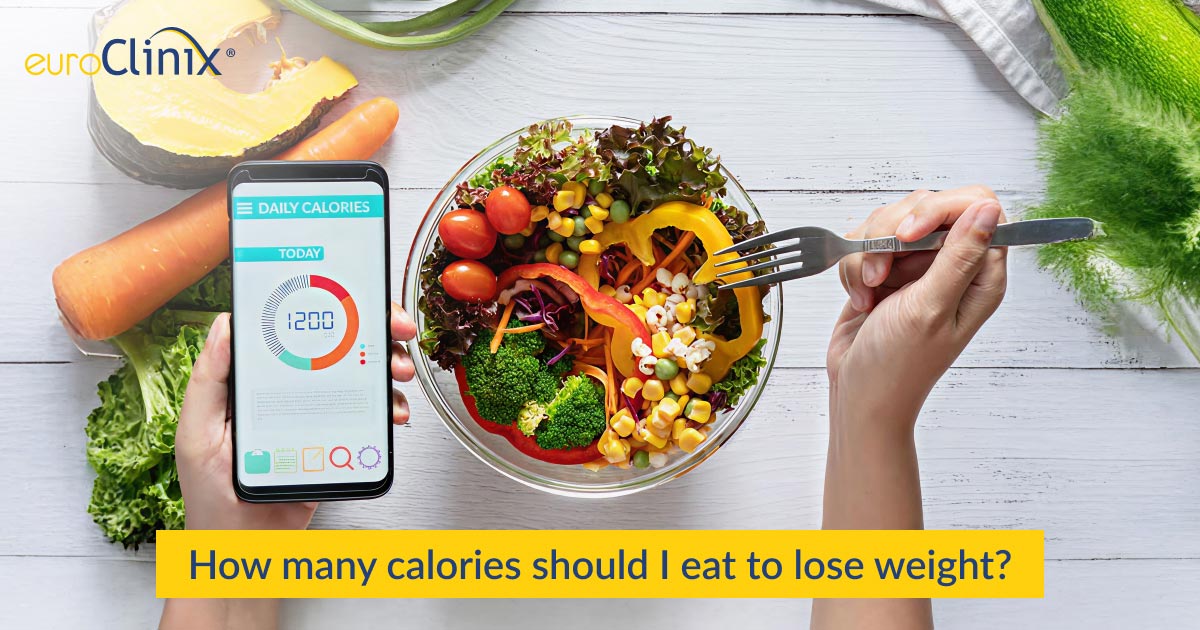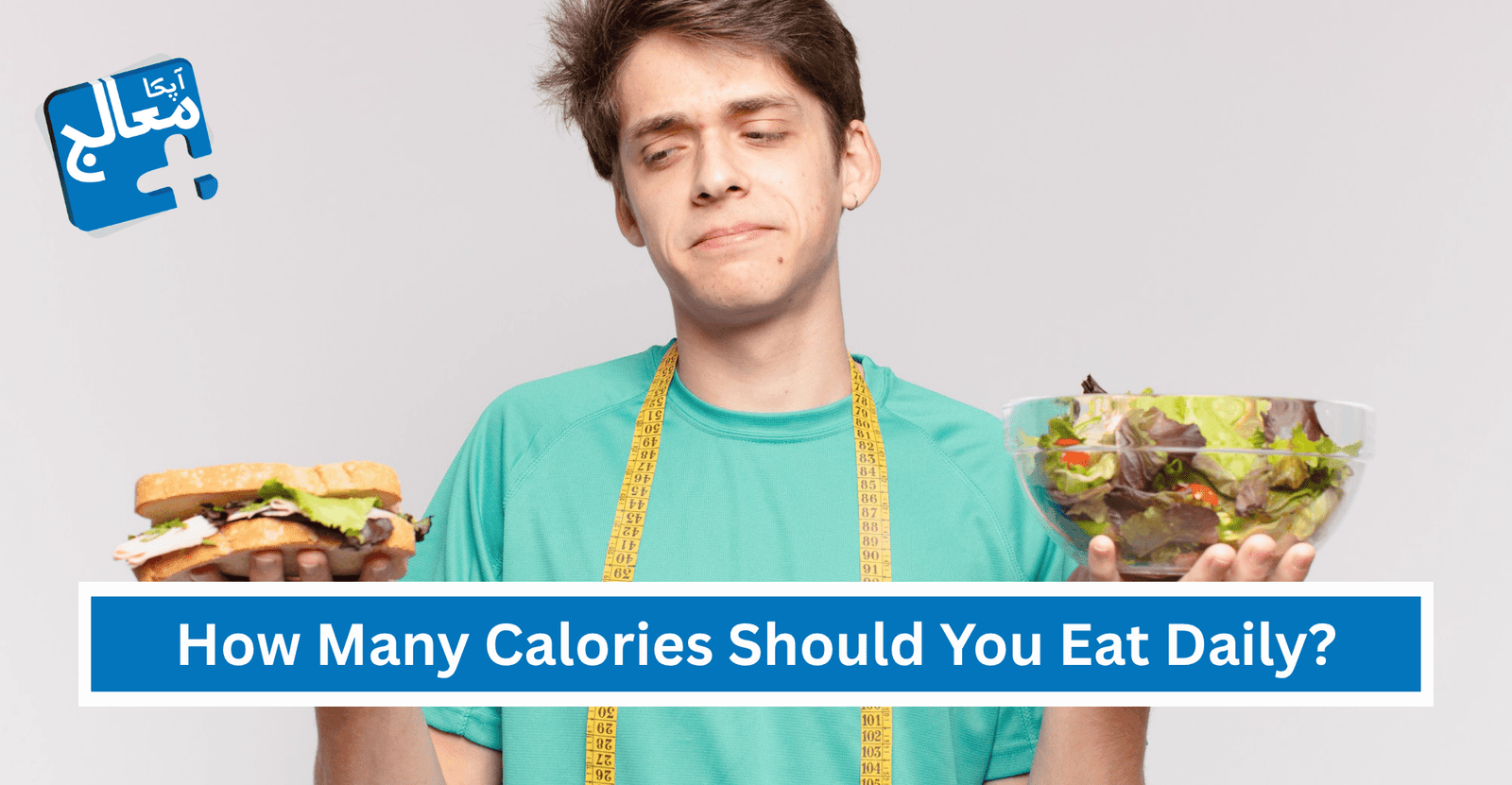Are you tired of guessing how many calories you should eat to lose weight? It’s confusing to know what number will actually help you shed pounds without feeling hungry or weak.
But understanding your calorie needs is the key to making weight loss simple and effective. You’ll discover exactly how to find the right calorie target for your body and lifestyle. Keep reading, because once you get this right, losing weight becomes much easier—and you’ll start seeing results faster than you thought possible.

Calorie Basics
Calories are units of energy in the food you eat. Your body uses calories to do everyday activities.
Knowing how many calories you need helps you lose weight in a healthy way.
What Are Calories
Calories measure the energy you get from food and drinks. Your body burns this energy to work and move.
Different foods have different calories. For example, fats have more calories than proteins or carbs.
Calories And Weight Loss
To lose weight, you must burn more calories than you eat. This is called a calorie deficit.
Eating fewer calories than your body needs causes it to use stored fat for energy, leading to weight loss.
Daily Calorie Needs
Your daily calorie needs depend on your age, sex, weight, height, and activity level.
Here is a simple table showing average calorie needs for adults:
| Activity Level | Women (calories/day) | Men (calories/day) |
|---|---|---|
| Sedentary (little or no exercise) | 1,800 – 2,000 | 2,200 – 2,400 |
| Moderately active (light exercise 3-5 days/week) | 2,000 – 2,200 | 2,400 – 2,800 |
| Active (hard exercise 6-7 days/week) | 2,200 – 2,400 | 2,800 – 3,000 |
Factors Affecting Calorie Needs
Knowing how many calories to eat is key to losing weight. Different factors change how many calories your body uses each day.
Understanding these factors helps you set a calorie goal that fits your body and lifestyle.
Age And Metabolism
Your metabolism slows as you get older. This means your body burns fewer calories at rest.
You may need fewer calories to keep your weight as you age. This makes weight loss harder without changes in diet or activity.
Gender Differences
Men usually burn more calories than women. This is because men tend to have more muscle and less fat.
Women often need fewer calories to lose weight. Calorie needs vary by gender due to body makeup and hormones.
Activity Level
Physical activity raises the number of calories you burn daily. More active people need more calories.
Less active people burn fewer calories. Adjust your calorie intake based on how much you move each day.
- Sedentary: little or no exercise
- Light activity: light exercise 1-3 days a week
- Moderate activity: moderate exercise 3-5 days a week
- Active: hard exercise 6-7 days a week
- Very active: very hard exercise or physical job
Body Composition
Muscle burns more calories than fat. People with more muscle need more calories to keep their weight.
Body fat does not use many calories. If you have more fat, your calorie needs may be lower.
Calculating Your Calorie Goal
To lose weight, you need to eat fewer calories than your body uses. Calculating your calorie goal helps you find the right amount to eat each day.
This goal depends on your body’s energy needs and how active you are. Let’s look at the main parts to calculate it.
Basal Metabolic Rate (bmr)
BMR is the number of calories your body burns at rest. It is the energy needed for breathing, circulation, and other basic functions.
Your BMR depends on your age, weight, height, and gender. Knowing your BMR helps you understand how many calories you burn without any activity.
- Older people usually have a lower BMR
- Men tend to have a higher BMR than women
- More muscle mass increases BMR
Total Daily Energy Expenditure (tdee)
TDEE is the total calories you burn in a day. It includes your BMR plus the calories used for activities.
To find your TDEE, multiply your BMR by an activity factor. This factor changes based on how active you are.
- Sedentary (little or no exercise): BMR × 1.2
- Lightly active (light exercise 1-3 days/week): BMR × 1.375
- Moderately active (moderate exercise 3-5 days/week): BMR × 1.55
- Very active (hard exercise 6-7 days/week): BMR × 1.725
- Extra active (very hard exercise or job): BMR × 1.9
Creating A Calorie Deficit
To lose weight, eat fewer calories than your TDEE. This difference is called a calorie deficit.
A safe calorie deficit is about 500 calories per day. This can help you lose about one pound per week.
- A deficit too large can cause muscle loss
- Eating too little can lower your metabolism
- Balance your diet with healthy foods
Safe Calorie Deficit For Weight Loss
To lose weight, you need to eat fewer calories than your body uses. This difference is called a calorie deficit.
Creating a safe calorie deficit helps you lose fat without harming your health or energy.
Recommended Calorie Reductions
Most experts suggest eating 500 to 750 fewer calories each day. This helps you lose about 1 to 1.5 pounds per week.
This range is safe and keeps your body fueled for daily activities and exercise.
- 500 calorie deficit = ~1 pound weight loss per week
- 750 calorie deficit = ~1.5 pounds weight loss per week
- Adjust based on your activity level and body size
Avoiding Extreme Calorie Cuts
Cutting too many calories can slow your metabolism and cause muscle loss. It may also make you feel tired or weak.
Avoid eating less than 1,200 calories daily for women or 1,500 calories for men unless supervised by a doctor.
- Extreme calorie cuts can cause nutrient deficiencies
- Can lead to fatigue and poor concentration
- May cause your body to hold on to fat
- Risk of losing muscle instead of fat
Balancing Nutrition And Calories
Eating fewer calories does not mean you skip important nutrients. Your meals should be balanced and healthy.
Include protein, healthy fats, and fiber to keep you full and support your body during weight loss.
- Eat lean proteins like chicken, fish, or beans
- Include vegetables and fruits for vitamins and fiber
- Choose whole grains over refined grains
- Use healthy fats like olive oil and nuts
- Drink plenty of water every day
Tracking Calories Effectively
Counting calories helps you control how much you eat. Tracking food intake makes weight loss easier.
Being accurate with calories can guide your eating choices. It shows if you eat too much or too little.
Using Food Diaries
Food diaries are simple notebooks or apps to write down what you eat. They help you see your daily calorie intake.
Writing food details makes you aware of your habits. It can help stop eating too many snacks or large meals.
Calorie Counting Apps
Calorie apps track your food and calculate calories automatically. They save time and reduce mistakes in counting.
These apps often include large food databases. You can scan barcodes or search to log meals quickly and accurately.
Measuring Portion Sizes
Knowing portion sizes helps track calories better. Using cups, spoons, or scales gives correct food amounts.
Eyeballing portions can cause errors. Measuring food ensures you do not eat more calories than planned.
- Use kitchen scales for meats and vegetables
- Use measuring cups for rice and pasta
- Use spoons for oils and sauces

Adjusting Calories Over Time
To lose weight, you need to eat fewer calories than you burn. But your calorie needs change as you lose weight. Adjusting your calories over time helps you keep losing weight safely and steadily.
Tracking your progress and making changes to your calorie intake can prevent plateaus. It also ensures your goals stay realistic and healthy.
Monitoring Progress
Check your weight and measurements regularly. This helps you see if your calorie plan is working. Use a journal or app to track your daily calories and weight changes.
Look for steady weight loss of about 1 to 2 pounds per week. If you lose weight too fast, you might be eating too little. If you do not lose weight, you may need to adjust calories.
Plateaus And Adjustments
Weight loss plateaus happen when your body adapts to fewer calories. You stop losing weight even if you eat the same amount. This is normal and means your calorie needs have changed.
To break a plateau, reduce calories slightly or increase physical activity. Small changes can restart weight loss. Avoid big calorie cuts that can harm your health.
- Decrease daily calories by 100-200
- Add extra walking or exercise
- Focus on healthy, balanced meals
- Stay patient and consistent
Reevaluating Goals
As you lose weight, your goals might need changes. Your ideal weight or how fast you want to lose it may shift. Check your goals every few weeks or months.
Set new calorie targets if needed. Make sure goals are realistic and keep your health in mind. Talk to a health expert if you feel unsure about your plan.
Common Mistakes To Avoid
Knowing how many calories to eat is key to losing weight. Many people make mistakes that slow progress.
Some errors come from wrong ideas about food and exercise. Avoiding these helps you reach your goals.
Ignoring Nutrient Quality
Counting calories is not enough. The type of food you eat matters a lot. Eating only low-calorie junk food can harm your body.
Good nutrients help your body stay strong and full. Choose foods with vitamins, minerals, and fiber for better results.
- Eat vegetables, fruits, and whole grains
- Include lean proteins like chicken and beans
- Avoid sugary drinks and processed snacks
Overestimating Activity
Many people think they burn more calories than they do. This mistake leads to eating too much food.
Exercise helps weight loss but does not cancel out overeating. Track your activity honestly for better calorie control.
- Use a fitness tracker or app to estimate calories burned
- Do not add extra food as a reward for exercise
- Remember that daily activities also burn calories
Skipping Meals
Skipping meals to eat fewer calories can backfire. It may cause hunger and overeating later in the day.
Eating regular meals keeps your energy steady. It helps control hunger and makes you less likely to snack on unhealthy foods.
- Eat balanced meals at regular times
- Include protein and fiber to stay full longer
- Have healthy snacks if needed between meals

Frequently Asked Questions
How Many Calories Should I Eat Daily To Lose Weight?
To lose weight, consume fewer calories than your body burns. Typically, a daily intake of 500 to 750 calories less than maintenance supports safe weight loss of 1-1. 5 pounds per week.
What Factors Affect My Calorie Needs For Weight Loss?
Age, gender, weight, height, and activity level influence calorie needs. Metabolism and muscle mass also affect how many calories you should consume to lose weight effectively.
Can I Eat Fewer Than 1200 Calories Per Day Safely?
Eating fewer than 1200 calories daily can be unsafe without medical supervision. It may cause nutrient deficiencies and slow metabolism, hindering sustainable weight loss.
How Do I Calculate My Calorie Deficit For Weight Loss?
Calculate your maintenance calories using an online calculator, then subtract 500-750 calories daily. This deficit typically leads to steady, healthy weight loss over time.
Conclusion
Finding the right calorie intake is key. Start by understanding your body’s needs. Track your meals and stay consistent. Listen to your body’s hunger signals. Choose nutritious foods that keep you full. Avoid empty calories from sugary drinks and snacks.
It’s important to stay active and exercise regularly. Adjust your calorie intake based on your progress. Remember, weight loss takes time and patience. Celebrate small victories and stay motivated. Healthy habits lead to lasting results. Stay committed to your goals for the best outcome.



